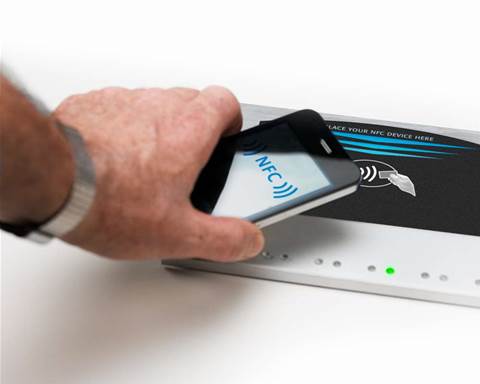The ACCC is likely to deny a cabal of Australian banks the ability to collectively bargain with and boycott Apple on Apple Pay.
In July, Commonwealth Bank, Westpac, National Australia Bank and Bendigo and Adelaide Bank lobbied the ACCC to pressure Apple into opening access to the NFC chips inside iPhones to allow greater bank regulation on digital wallets. The banks pushed for an interim ruling in August, which was denied.
Today, the commission issued a draft determination proposing to deny collective bargaining authorisation to the banks involved.
The banks sought authorisation to challenge Apple on two key issues. The first being access to the near-field communication controller in iPhones, which the banks want to leverage for use in their own digital wallet apps.
The second key bargaining issue was around the removal of restrictions Apple imposed on the banks, preventing them from passing on the Apple Pay fees they incurred to customers.
ACCC chairman Rod Sims said it was a “finely balanced decision” on the banks’ proposals, which he deemed the potential benefits of too unclear at this point.
“The ACCC is not currently satisfied that the likely benefits from the proposed conduct outweigh the likely detriments,” he said.
“While the ACCC accepts that the opportunity for the banks to collectively negotiate and boycott would place them in a better bargaining position with Apple, the benefits are currently uncertain and may be limited.”
The four banks were quick to respond, with a spokesperson publicly announcing they remained committed to their cause and would continue working with the ACCC to address the issues raised in the draft determination.
The banks argued that opening iOS NFC development would increase competition, innovation, price efficiency and consumer choice around digital wallets.
“If the draft determination of the Australian competition regulator stands, effectively there will be no competition against Apple for mobile payments on the iPhone,” spokesperson Lance Blockley said.
“The application has never been about preventing Apple Pay from coming to Australia or reducing competition between wallets. It has always been about providing consumer choice and innovation.”
The four banks are yet to negotiate Apple Pay compatibility for their cardholders. Unlike Android, Apple does not allow third-party digital wallets to control its device’s NFC chips.
“However, banks can already offer competing digital wallets on iPhone without direct access to NFC, through their own apps using Apple Pay payment technology, or using NFC tags. Banks can also offer digital wallets on the Android platform,” Sims said.
“Digital wallets and mobile payments are in their infancy and subject to rapid change. In Australia, consumers are used to making tap and go payments with payment cards, which provide a very quick and convenient way to pay. It is therefore uncertain how competition may develop with the availability of mobile payments and possible future innovations.”
The ACCC is concerned the banks’ proposed conduct could reduce or distort competition in a number of markets, namely, the banking sector.
“Apple Wallet and other non-bank digital wallets could represent a disruptive technology that may increase competition between the banks by making it easier for consumers to switch between card providers and limiting any ‘lock in’ effect bank digital wallets may cause,” Sims said.
Supermarket giant Coles and the Australian Retailers' Association had backed the banks' argument in pursuit of greater customer choice and industry innovation. The banks urged organisations in support of their application to respond to the draft determination with further submissions during the consultation period.
“Whilst we are disappointed with this draft result, our application is not just relevant to Australia – the same issues around consumer choice and the freedom to offer genuine competition against Apple Pay arise globally,” Blockley said.
The ACCC said it expected to release its final decision in March 2017.


.png&h=128&w=207&c=1&s=1)


.jpg&h=142&w=230&c=1&s=1)

_(21).jpg&h=142&w=230&c=1&s=1)





.jpg&w=100&c=1&s=0)











